Removal Procedure
Important: Do not raise the engine by the crankshaft balancer in order to perform this service procedure. Damage to the crankshaft balancer or the crankshaft may occur.
- Disconnect the Battery negative cable.
- Remove the oil level indicator and the tube from the engine. Refer to Oil Level Indicator and Tube Replacement .
- Raise the vehicle and support with safety stands. Refer to Lifting and Jacking the Vehicle in General Information.
- Drain the crankcase. Refer to Draining Fluids and Oil Filter Removal .
- Remove the starter from the engine block. Refer to Starter Motor Replacement .
- Remove the flywheel inspection cover, if equipped.
- Remove the oil cooler line retainer from the retaining bracket. Refer to Engine Oil Cooler Hose/Pipe Replacement .
- Remove the transmission from the vehicle (coil spring suspension only).
- Remove the clutch if equipped. Refer to Clutch Assembly Replacement .
- Remove the flywheel from the crankshaft. Refer to Engine Flywheel Replacement .
- Remove the oil pan bolts from the engine block.
- Remove the oil pan from the vehicle.
- Remove the oil pan gasket from the engine block.
- Remove the oil from the sealing surfaces. Refer to Engine Block Cleaning and Inspection .
Caution: Before servicing any electrical component, the ignition and start switch must be in the OFF or LOCK position and all electrical loads must be OFF, unless instructed otherwise in these procedures. If a tool or equipment could easily come in contact with a live exposed electrical terminal, also disconnect the negative battery cable. Failure to follow these precautions may cause personal injury and/or damage to the vehicle or its components.
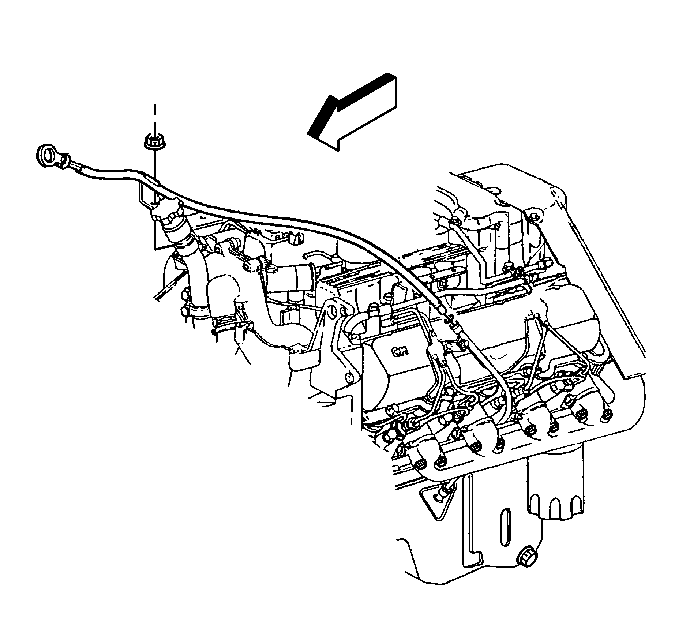

Important: Do not lift the engine by the crankshaft balancer in order to aid in removing the oil pan from the engine block. Damage to crankshaft balancer or crankshaft could occur.
Refer to the following procedures:
| • | Transmission Replacement (Manual). |
| • | Transmission Replacement (Automatic). |
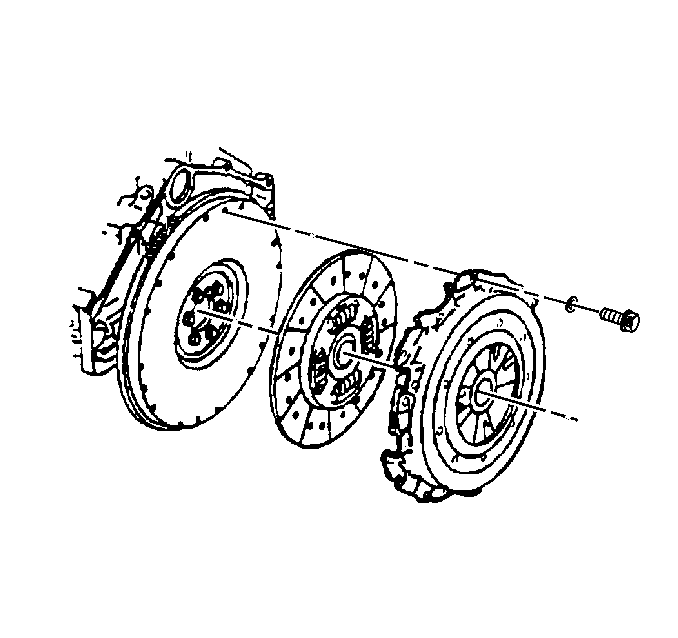
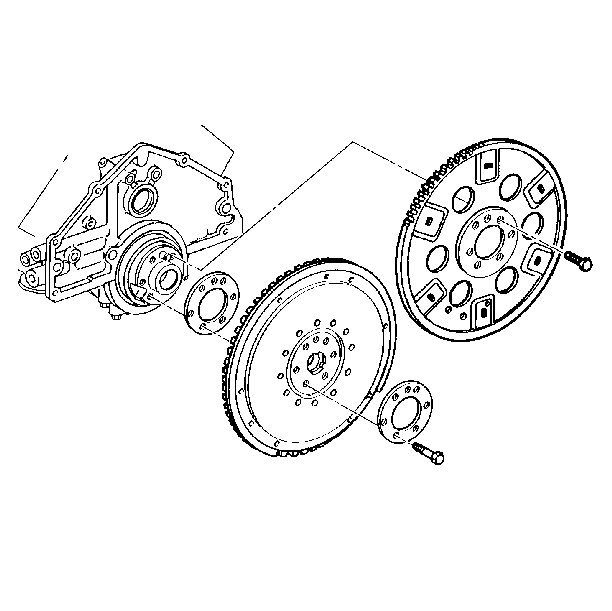
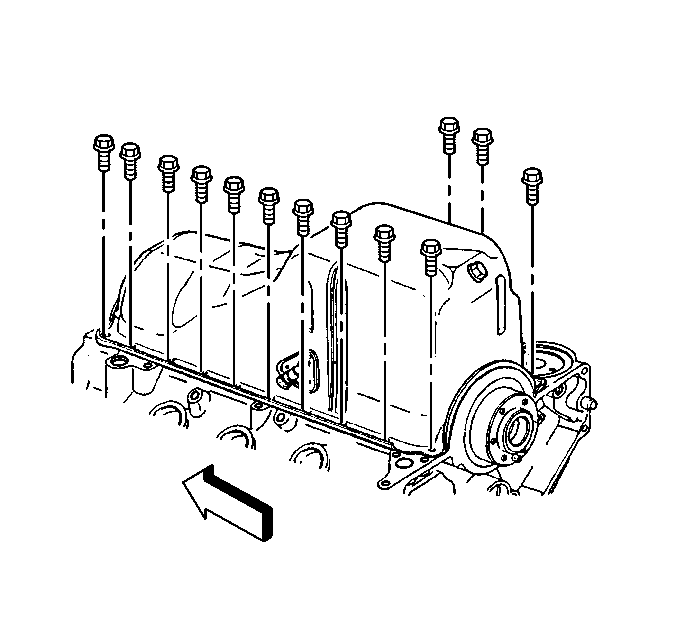
Installation Procedure
- Apply sealant GM P/N 12345739 or the equivalent in 2 sealant points where the rear crankshaft bearing cap meets the engine block.
- Apply sealant GM P/N 12345739 or the equivalent in 2 sealant points where the engine front cover meets the block.
- Install the oil pan gasket on the oil pan.
- Install the oil pan gasket and the oil pan to the engine block.
- Install the oil pan bolts to the engine block.
- Install the oil pan drain plug.
- Install the clutch assembly to the flywheel. Refer to Clutch Assembly Replacement .
- Install the flywheel to the crankshaft. Refer to Engine Flywheel Replacement .
- Install flywheel inspection cover to the transmission.
- Install the transmission in the vehicle.
- Install the starter to the engine block. Refer to Starter Motor Replacement .
- Install the engine oil cooler lines to the retainer. Refer to Engine Oil Cooler Hose/Pipe Replacement .
- Remove the safety stands and lower the vehicle.
- Install the oil level indicator and tube. Refer to Oil Level Indicator and Tube Replacement .
- Fill the crankcase with new engine oil. Refer to the owner's manual for the proper grade and quantity.
- Connect the battery negative cables.
Important: The oil pan must be installed and the fasteners tightened while the sealant is still wet to the touch.


Notice: Use the correct fastener in the correct location. Replacement fasteners must be the correct part number for that application. Fasteners requiring replacement or fasteners requiring the use of thread locking compound or sealant are identified in the service procedure. Do not use paints, lubricants, or corrosion inhibitors on fasteners or fastener joint surfaces unless specified. These coatings affect fastener torque and joint clamping force and may damage the fastener. Use the correct tightening sequence and specifications when installing fasteners in order to avoid damage to parts and systems.
Tighten
Tighten the bolts to 25 N·m (18 lb ft).
Tighten
Tighten the bolts to 28 N·m (21 lb ft).


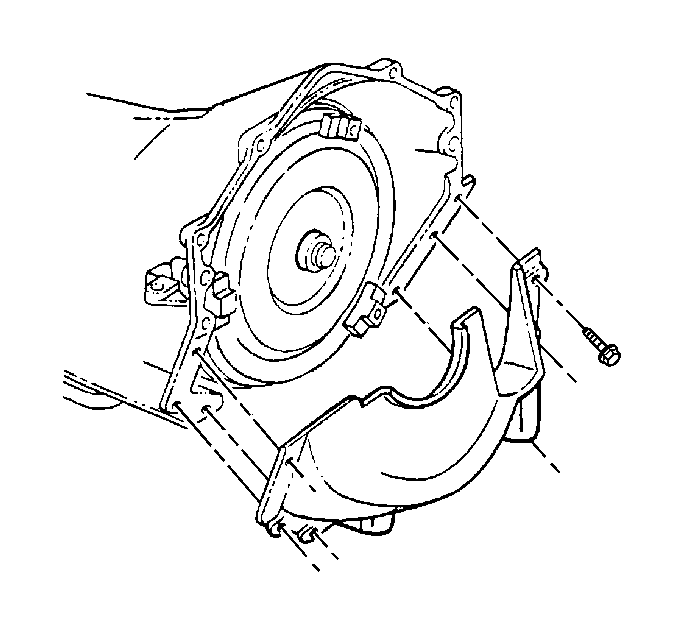
Refer to the following procedures:
| • | Transmission Replacement (Automatic). |
| • | Transmission Replacement (Manual). |


